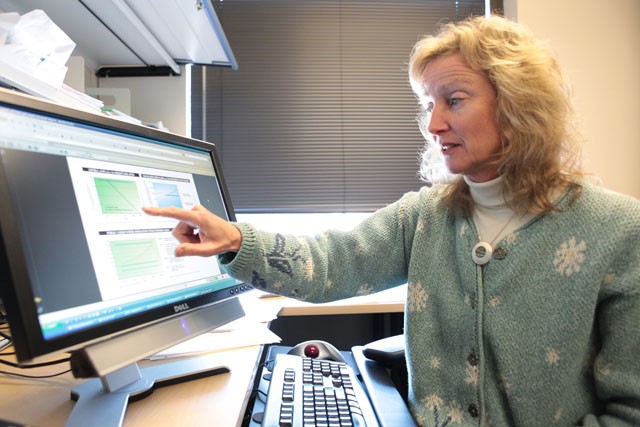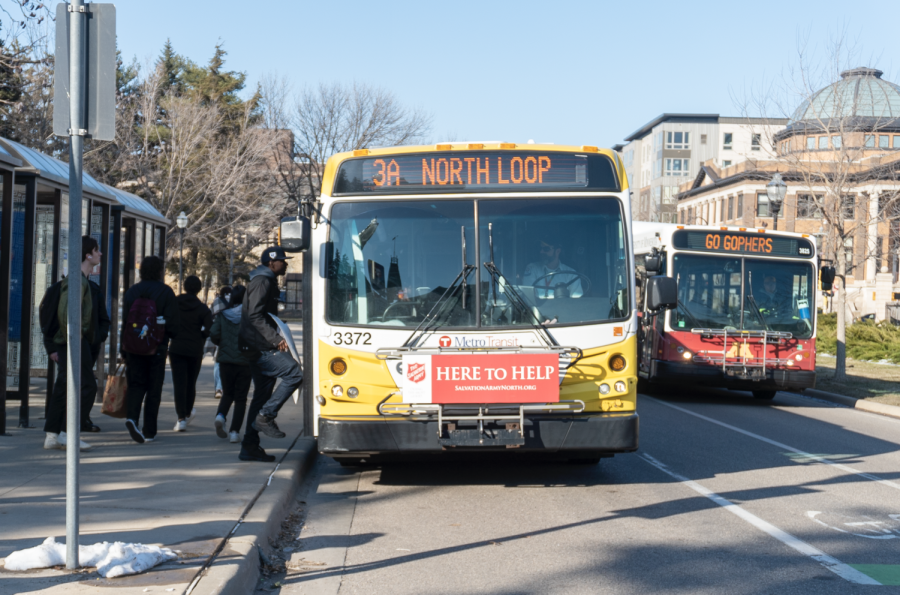Minnesota has troubled waters, but University of Minnesota professor and co-Director of the Water Resources Center Deborah Swackhamer has a plan to clean them up and make them sustainable.
In collaboration with more than 200 experts, as well as other government organization and leaders, Swackhamer has created a 25-year plan to help restore MinnesotaâÄôs lakes and rivers.
“We are in a rare moment of time. It is a historic point in time that we have here with so many of our citizens supporting clean water,” Swackhamer told legislators. “This is an important issue, and we have a rare moment to actually deal with it.”
An estimated 40 percent of the water in Minnesota does not meet clean water standards.
At a Jan. 5 meeting with state legislators, Swackhamer said her desire is not only to have zero substandard waters but also to be the first state with clean water.
The Minnesota Water Sustainability Framework, a 145-page report, outlines 10 main issues and gives recommendations, timelines and budget estimations to enact the improvements outlined.
The recommendations are broken into three categories: environmental, economic and social.
Creating the framework took 18 months, and the researchers had $750,000 at their disposal. The money came from the Clean Water Fund, a nonprofit organization that focuses on campaigning for cleaner and safer water and is active in 20 states. A portion of the funding will be returned because numerous contributors declined compensation.
“ItâÄôs a labor of love,” Swackhamer said. “Many people donated their time because it was the right thing to do.”
Researchers recommended legislative action, but the work that needs to be done goes beyond the confines of the Capitol. Swackhamer told legislators that it would be beneficial to include a $5 fee to each householdâÄôs water bills to cover ecological services and benefits that have been taken away by building water plants or treatment.
“Right now we donâÄôt pay for the true cost of water. Water costs more than we pay for it. And weâÄôre saying, âÄòWhy donâÄôt we actually pay for the cost of water?âÄô” Swackhamer told legislators earlier this month.
She finished her presentation with what she called her “Letterman top 10,” acknowledging that the state may not be able to accomplish everything. She outlined the five most important issues for water sustainability.
Swackhamer stressed that the most important issue is bringing the state in accordance with federal law by updating the permit process and controlling agricultural pollutants.
Now that the framework is finished, SwackhamerâÄôs only role is to present and explain her findings to lawmakers. But that doesnâÄôt guarantee any changes to current policy.
State Rep. Kate Knuth, DFL-New Brighton, serves on the committee. Knuth said that while it is useful to have the information from the report, there is disagreement on how to protect MinnesotaâÄôs waters.
Ultimately, the framework is about creating a sustainable water future for generations to come.
“In order to protect our national resources we have to do long-term planning,” Swackhamer said. “ItâÄôs about the students; the plan will affect you far more than it will affect me, and it will affect my children more than it will affect you. ItâÄôs about making sure that we infuse a culture of sustainability into how we think and plan and manage, and this framework is really an explicit task of how to get there.”
















